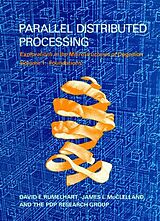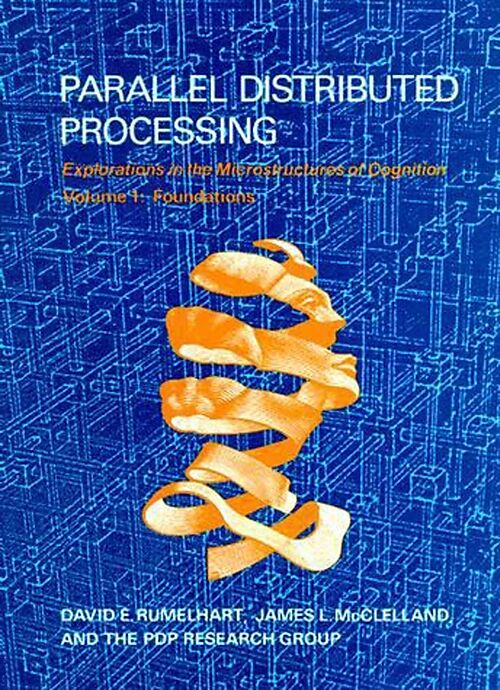Parallel Distributed Processing, Volume 1
Einband:
Kartonierter Einband
EAN:
9780262680530
Untertitel:
Explorations in the Microstructure of Cognition: Foundations
Autor:
David E. Rumelhart, James L. Mcclelland, Pdp Research Group
Herausgeber:
MIT Press
Anzahl Seiten:
570
Erscheinungsdatum:
29.07.1987
ISBN:
026268053X
Zusatztext The most intense, most effective and most mind-stretching view of neurocomputing origins, theories and concerns to yet reach print. Intelligence Informationen zum Autor David E. Rumelhart, James L. McClelland, and PDP Research Group Klappentext This book describes the authors work in developing a theoretical framework for describing parallel distributed processing activity and in applying the framework to the development of models of aspects of perception, memory, language, and thought. Zusammenfassung What makes people smarter than computers? These volumes by a pioneering neurocomputing group suggest that the answer lies in the massively parallel architecture of the human mind. They describe a new theory of cognition called connectionism that is challenging the idea of symbolic computation that has traditionally been at the center of debate in theoretical discussions about the mind. The authors' theory assumes the mind is composed of a great number of elementary units connected in a neural network. Mental processes are interactions between these units which excite and inhibit each other in parallel rather than sequential operations. In this context, knowledge can no longer be thought of as stored in localized structures; instead, it consists of the connections between pairs of units that are distributed throughout the network. Volume 1 lays the foundations of this exciting theory of parallel distributed processing, while Volume 2 applies it to a number of specific issues in cognitive science and neuroscience, with chapters describing models of aspects of perception, memory, language, and thought.
Autorentext
David E. Rumelhart, James L. McClelland, and PDP Research Group
Klappentext
This book describes the authors work in developing a theoretical framework for describing parallel distributed processing activity and in applying the framework to the development of models of aspects of perception, memory, language, and thought.
Zusammenfassung
What makes people smarter than computers? These volumes by a pioneering neurocomputing group suggest that the answer lies in the massively parallel architecture of the human mind. They describe a new theory of cognition called connectionism that is challenging the idea of symbolic computation that has traditionally been at the center of debate in theoretical discussions about the mind. The authors' theory assumes the mind is composed of a great number of elementary units connected in a neural network. Mental processes are interactions between these units which excite and inhibit each other in parallel rather than sequential operations. In this context, knowledge can no longer be thought of as stored in localized structures; instead, it consists of the connections between pairs of units that are distributed throughout the network. Volume 1 lays the foundations of this exciting theory of parallel distributed processing, while Volume 2 applies it to a number of specific issues in cognitive science and neuroscience, with chapters describing models of aspects of perception, memory, language, and thought.

Leider konnten wir für diesen Artikel keine Preise ermitteln ...
billigbuch.ch sucht jetzt für Sie die besten Angebote ...
Die aktuellen Verkaufspreise von 6 Onlineshops werden in Realtime abgefragt.
Sie können das gewünschte Produkt anschliessend direkt beim Anbieter Ihrer Wahl bestellen.
Loading...
Die aktuellen Verkaufspreise von 6 Onlineshops werden in Realtime abgefragt.
Sie können das gewünschte Produkt anschliessend direkt beim Anbieter Ihrer Wahl bestellen.
| # | Onlineshop | Preis CHF | Versand CHF | Total CHF | ||
|---|---|---|---|---|---|---|
| 1 | Seller | 0.00 | 0.00 | 0.00 |
